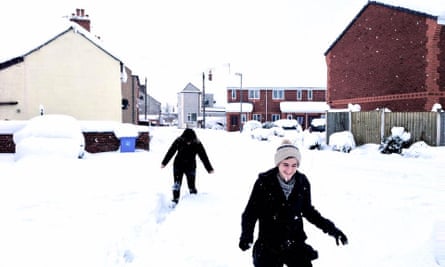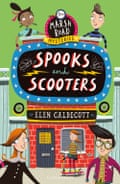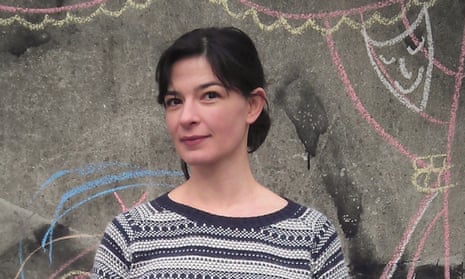Growing up, I desperately wanted a pair of spandex wrestling trousers. Black and gold ones, if I was offered the choice. This is because I often spent Sundays playing very active games of WWF wrestling in the council house where my brothers lived. On those days my name wasn’t Elen, it was The Destroyer, The Disemboweller or sometimes, Just Face It I’m The Best (I was the eldest, I could get away with that sort of thing).

I had fun – and bruises like a peach in a washing machine.
Weekdays were different. I spent those with my mum in a house full of books, with a telly that had an off-switch. Weekdays, I was a middle-class, academically minded Matilda. I was only The Destroyer at weekends.
Slowly, I came to realise that boys like my brothers were missing from the books I was reading. The boys in books went to public school and cycled around Cornwall, or were sickly heirs to massive fortunes.
Even in the gritty-realist YA fiction I found later, working-class boys were a mess – they were in gangs, or had alcoholic parents, or dropped out of school. They were victims of their social class. The sort of life I remember, scenes of snowball fights at the Rec, or of everyone piling into a parents’ car just for the joy of the journey, or of running into a neighbour’s house because your dad needed a Philip’s screwdriver and you’d been quested with finding one, were absent. They were not the right sort of setting for stories of magic or adventure.
Wait! - you might be yelling - there are loads of poor people in kid’s books! And you’d be right, of course. Harry Potter lives in a cupboard. Charlie Bucket can’t afford sweets. But think about the attitudes to their poverty in these books. Harry is rescued from typist Petunia Dursley and sent to an elite boarding school. Charlie ends up owning everything! The values expressed in children’s fiction (generally speaking) are middle-class: that education creates opportunities, and that fair play will be rewarded.
It’s actually really difficult, as a writer, to express different ideas. I’ve been taught these values, just as every reader has. After all, is there a more middle-class pastime than reading? Or a more middle-class career than publishing? (I heard a great story once about a copy editor changing “Is it, blud?” to “Is it blue?” in a manuscript set in South London. That correction says everything about the demographic of publishing.)
I’m writing a series of books, the Marsh Road Mysteries, which has been praised for its diversity. But I’m carrying a shady secret. It has been much easier for me to write the middle-class characters than it has been to write everyone else. The Hampshire twins are solidly middle-class with private lessons, skiing holidays, a lawyer and engineer for (divorced) parents. And I know how to write them. The rest of the gang, I felt I had to research. I took pictures, filmed streets, wrote down overheard conversations. I worried about getting it right. I had no such worries about the twins, because their way of being is the “normal” way of being, in children’s books at least.
So, if I were Queen of the Publishing World, there are changes I would like to see.
I’d love to read writers who celebrate working-class values and voices. Thinking back to Sundays at my dad’s, there are things I’d want to share with the wider world. One is a strong sense of living in the moment, being impulsive. Want to spend the afternoon at the beach? Let’s go. Want to eat chips for tea? Put the plates in the oven to warm. Another was the closeness of the community, loyalty to family and friends and a sense that it was everyone’s job to mind the others. There was also respect for practical skills - someone’s cousin was always on hand with a spanner when the car conked out.
I’d also love to hear about the diversity of working-class lives. My experience was of a post-industrial Welsh village. But people are paid by the hour in all sorts of situations, from all sorts of cultures and ethnicities. I’d love to read more books like Demolition Dad by Phil Earle or Boy in the Tower by Polly Ho-Yen, which use working class homes as an incidental backdrop for larger-than-life stories. Widening our ideas of who can be in books will mean that we will get to hear previously unimagined tales. Is there anything more exciting than that for readers?
We have an opportunity, now that diversity has become a key word in publishing, to broaden what books for children can be and who they can be about. I, for one, find that incredibly exciting. Spandex wrestling trousers all round! (at least in books).

Elen Caldecott is the author of How Kirsty Jenkins Stole the Elephant, How Ali Ferguson Saved Houdini and the Marsh Road Mysteries. Find out more about Elen on her website and buy the latest in the Marsh Road Mysteries, Spooks and Scooters, at the Guardian bookshop.
